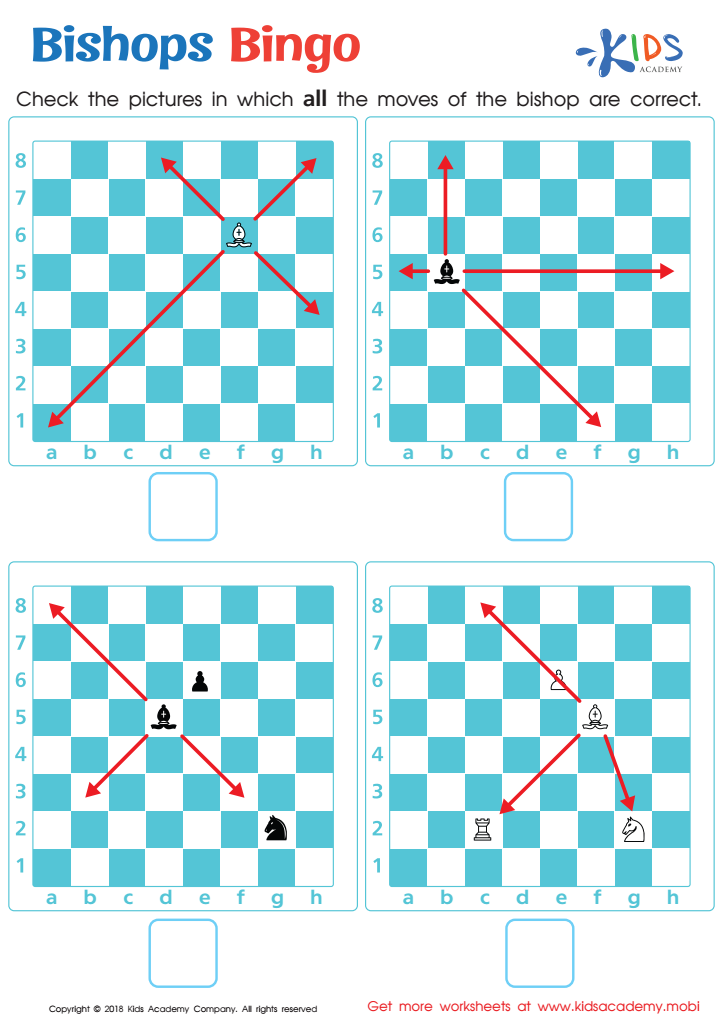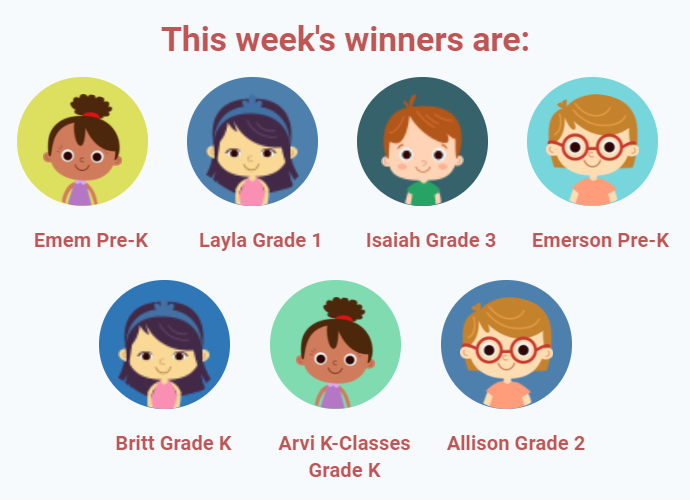Develops strategic thinking Worksheets for Kids
1 filtered results
-
From - To


Bishops Bingo Worksheet
Question/Answer
What are some effective activities to train students’ Develops strategic thinking skill when teaching them about Chess?
To train students in developing strategic thinking through chess, incorporate activities like solving chess puzzles to improve problem-solving skills, playing games focusing on specific strategies or tactics, analyzing famous games to understand strategic concepts, conducting simulated games with limited pieces to teach the value of each piece, and encouraging reflective discussions about their games to identify and learn from their strategic decisions.#$%
Why is the Develops strategic thinking skill important for Grade 1 students?
Developing strategic thinking skills in Grade 1 students is crucial because it fosters problem-solving abilities, enhances creativity, and improves decision-making. At this foundational stage, cultivating such skills helps children understand cause-and-effect relationships, boosts their academic performance, and prepares them for more complex challenges ahead. It lays the groundwork for lifelong learning and adaptability.
How to test a Grade 1 student’s Develops strategic thinking skills?
To test a Grade 1 student's strategic thinking skills, engage them in simple, age-appropriate puzzles or board games that require planning and problem-solving. Observe their ability to anticipate outcomes, make decisions based on available information, and adjust strategies when faced with new challenges.









